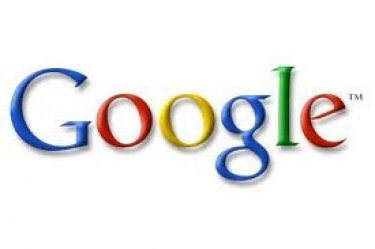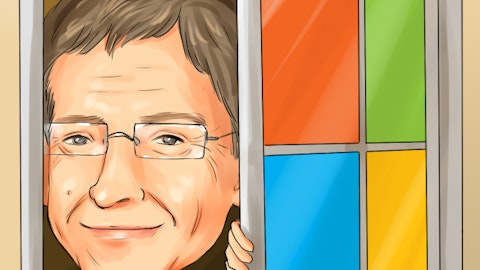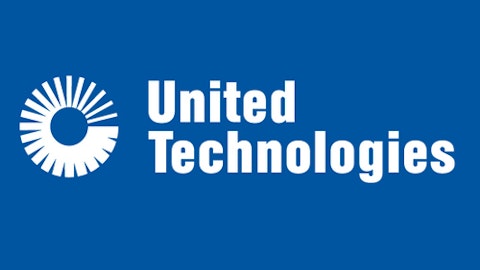These days, a wide range of companies, including General Electric, Cisco, 3M and Microsoft Corporation (NASDAQ:MSFT), are all clamoring for a piece of the booming industry of health care IT. New coding systems like ICD-10 and financial-incentive programs for meaningful use are sending medical practices scrambling to update their systems to meet government-mandated standards.
However, one major company that is notably absent from the health care IT gold rush is search giant Google Inc (NASDAQ:GOOG), which isn’t shy about disrupting other industries.

The failure of Google Health
In 2008, Google Inc (NASDAQ:GOOG) introduced a personal health-record service known as Google Health. Patients were asked to disclose their health records, either voluntarily or through a partnered EHR service, to create a centralized Google Health profile.
It was a revolutionary idea that had plenty of heavyweight backers, including Allscripts, Walgreen, CVS Caremark, and Drugs.com. It featured cutting-edge features, such as a Wi-Fi scale from Withings that could synchronize patients’ weight data with a cloud-based profile, and a seamless integration with telehealth features from MDLiveCare and Hello Health.
For a while, it looked as if Google Health would unite the fragmented world of EHR services just as its search engine did for the Internet.
Yet in 2011, the service was abruptly discontinued. Google Inc (NASDAQ:GOOG) claimed, via its blog, that the service was not “having the broad impact” that the company had hoped for, although it had proven popular among “tech-savvy patients and their caregivers” and “fitness and wellness enthusiasts.” Widespread adoption, however, eluded the company.
Could Google Health make a comeback?
Two years later, some investors are wondering if Google Inc (NASDAQ:GOOG) will resurrect Google Health to capitalize on the growing need for unified EHR systems. In the two years since Google Health’s demise, Android has surged in popularity, and now accounts for 80% of smartphone shipments and 63% of tablet shipments worldwide. With its eagerly anticipated Google Glass also on the way in late 2013 or early 2014, could this be the right time to release Google Health 2.0?
A major roadblock barring Google Health’s return is the complex enterprise nature of EHRs. Google Inc (NASDAQ:GOOG)’s main source of revenue comes from advertising. It generates this revenue by nurturing user dependence on its services — such as desktop search, cloud-based apps (maps, docs, YouTube, Gmail), and Android. Everything that Google Inc (NASDAQ:GOOG) makes, including Google Glass, is created with that goal in mind.
Enterprise is not the answer
Enterprise software, on the other hand, is how companies like Microsoft Corporation (NASDAQ:MSFT) and Hewlett-Packard generate sales. This is the industry of servers, software, and IT services — a highly fragmented and competitive business that Google has mostly avoided.
That’s why Microsoft Corporation (NASDAQ:MSFT) is still holding onto its EHR service, HealthVault, and has been promoting Windows 8 tablets as viable replacements for Apple Inc. (NASDAQ:AAPL) iPads to access mobile EHR apps. Microsoft has also been testing the idea of using the Kinect in coordination with HealthVault to revolutionize remote treatments.
Last quarter, CEO Steve Ballmer dramatically restructured the company’s business segments, creating a new cloud and enterprise group to oversee its enterprise operations, including health care. That big reorganization came before it reported its disastrous fourth-quarter earnings in July, when it took a $900 million charge related to the doomed Surface RT.
Google Glass could still be a game changer
While it’s unlikely that Google will get back into the EHR business, it’s likely that Google Glass and the Android ecosystem will play a key role in point-of-care services. Nuance Communications, through 360 products, has already shown the health care IT industry that voice-recognition is a viable future for clinical documentation improvement and EHR software. Small start-ups like Augmedix are building entire businesses around new medical apps for Google Glass.
Although those prospects sound exciting and conjure up visions of the sickbay on the U.S.S. Enterprise, the reality is more mundane. The farthest that physicians have gone so far with Google Glass is to stream surgeries for educational purposes. Drchrono, the creator of the leading native iPad EHR app in the United States, has made a few mock-ups of how its service will look on Google Glass.
However, Apple Inc. (NASDAQ:AAPL) remains the biggest challenge for Google Glass. The iPad is the most widely used piece of mobile hardware in health care facilities in the United States, according to a recent survey from Manhattan Research. Some 72% of physicians currently use tablets at work, and more than half of them prefer the iPad over other devices.
Leading EHR companies like Allscripts are also focusing on their native iPad apps, which are tethered to the cloud rather than desktop-based EHR programs. Using the iPad’s large touchscreen is also far more practical than using Glass’ voice and movement-based commands.
The Foolish bottom line
Will Google Health 2.0 appear in the near future? It might, but it probably won’t be the game-changing service that some health care IT industry watchers are hoping for. If Google gets back into the health care game, it will likely be via health care information or fitness-tracking apps, and not through the fragmented jungle of EHR services.
Google Glass has plenty of potential uses in patient care, but it remains to be seen if it can achieve widespread acceptance from medical practices, especially after the iPad has already saturated the market by displacing traditional computers on wheels.
The article Is Google Health 2.0 Inevitable? originally appeared on Fool.com and is written by Leo Sun.
Leo Sun owns shares of Apple. The Motley Fool recommends Apple and Google. The Motley Fool owns shares of Apple, Google, and Microsoft.
Copyright © 1995 – 2013 The Motley Fool, LLC. All rights reserved. The Motley Fool has a disclosure policy.





